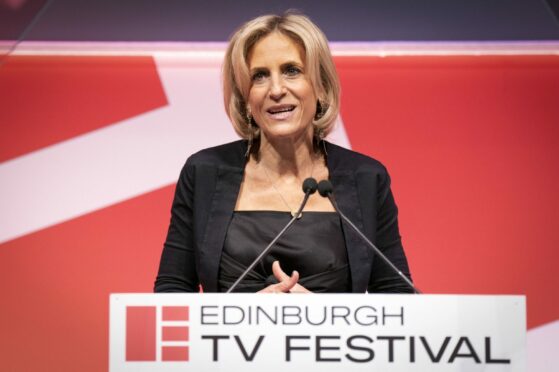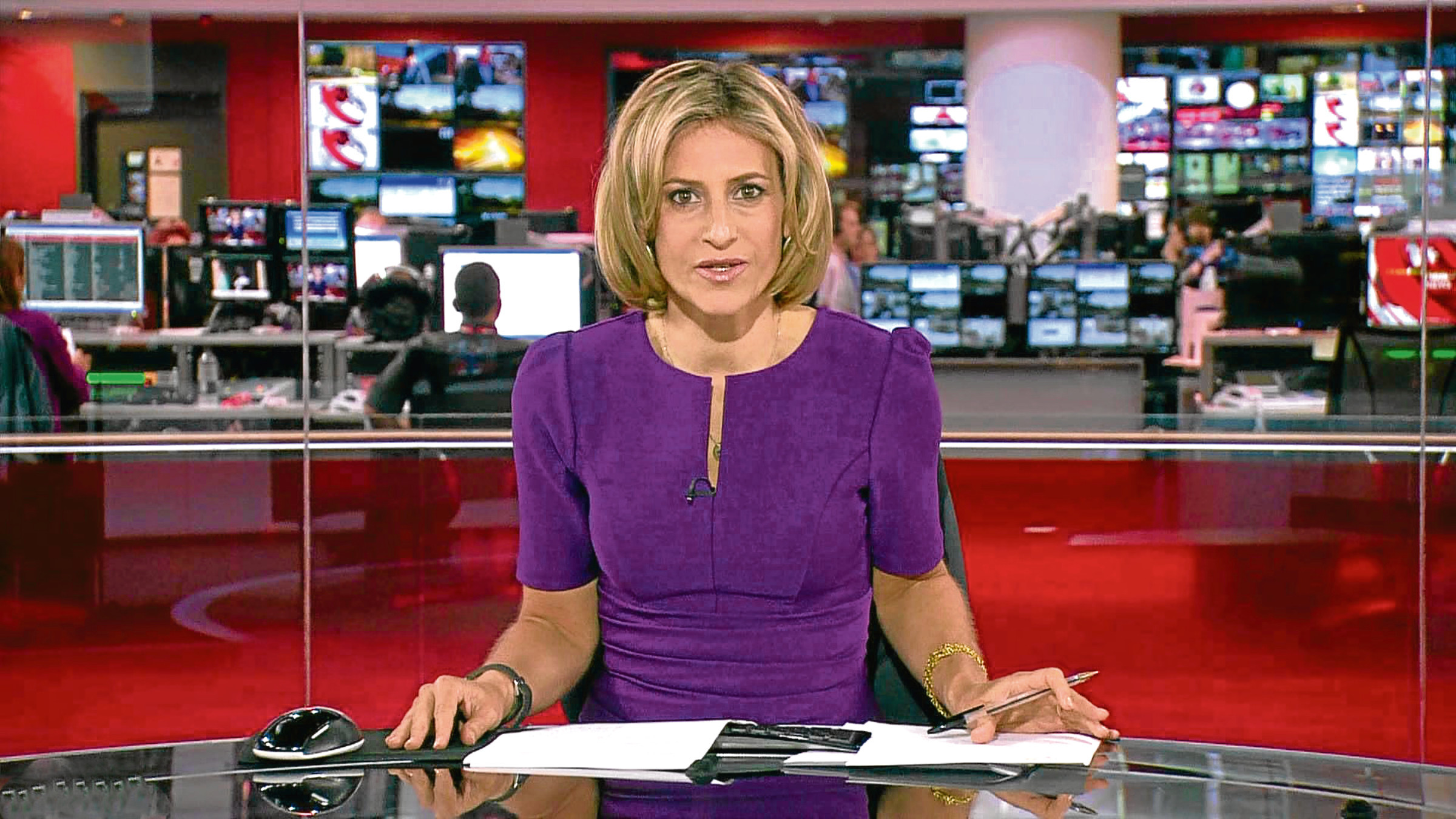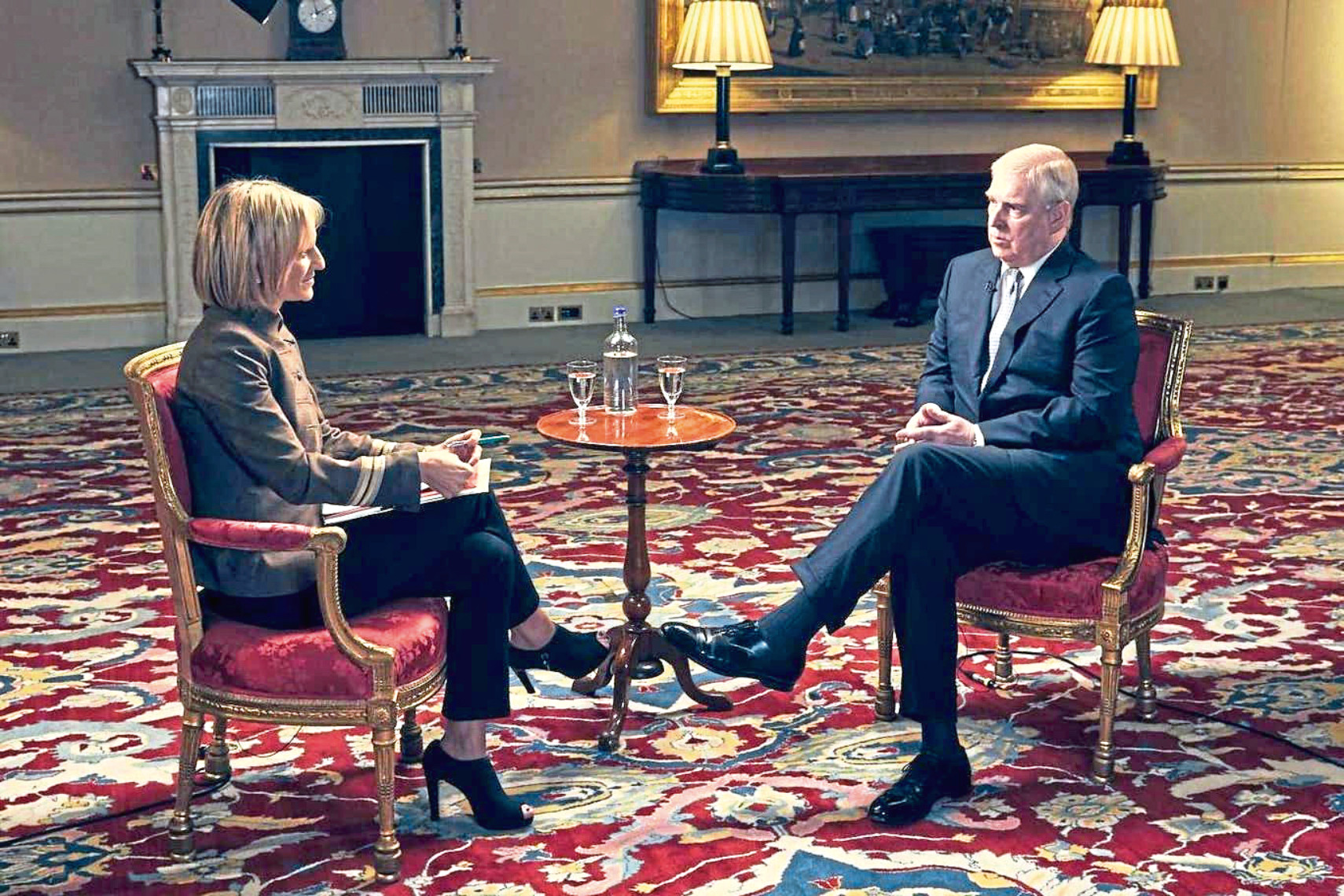
Emily Maitlis has said a current BBC board member is an “active agent of the Conservative party” who is shaping the broadcaster’s news output by acting “as the arbiter of BBC impartiality”.
Speaking at the MacTaggart memorial lecture at the Edinburgh international television festival, the former Newsnight presenter highlighted the role of Sir Robbie Gibb, who previously worked as Theresa May’s director of communications and helped to found the right wing GB News channel.
Boris Johnson’s government appointed him to the BBC’s board last year, and he has since influenced a series of ongoing reviews of the broadcaster’s editorial output.
Maitlis also said the BBC “sought to pacify” Number 10 by issuing a swift apology for her Newsnight monologue about Dominic Cummings which criticised his breaking of lockdown rules at the height of the pandemic.
In her lecture, which she called “Boiling Frog: Why We Have To Stop Normalising The Absurd”, she criticised the BBC’s response to the 2020 Newsnight instalment in which she opened the episode by saying Mr Cummings, then Boris Johnson’s chief adviser, had “broken the rules” with a lockdown trip to Durham and “the country can see that, and it’s shocked the Government cannot”.
The BBC received more than 20,000 complaints and ruled Maitlis breached impartiality rules, saying in a statement: “We believe the introduction we broadcast did not meet our standards of due impartiality.”
Maitlis said the programme initially “passed off with a few pleasant texts from BBC editors and frankly little else”.
She said: “It was only the next morning that the wheels fell off. A phone call of complaint was made from Downing Street to the BBC News management.
This is the most frightening video you'll watch on the state of democracy in the U.K.
Journalist Emily Maitlis says the BBC – her former employer – has been infiltrated by Conservative Party agents. pic.twitter.com/FFahhDuIkd
— PoliticsJOE (@PoliticsJOE_UK) August 24, 2022
“This – for context – is not unusual. It wasn’t unusual in the Blair days – far from it – in the Brown days, in the Cameron days. What I’m saying is it’s normal for government spin doctors to vocalise their displeasure to journalists.
“What was not foreseen was the speed with which the BBC sought to pacify the complainant. Within hours, a very public apology was made, the programme was accused of a failure of impartiality, the recording disappeared from the iPlayer, and there were paparazzi outside my front door.”
Maitlis said the media shows its impartiality when it reports “without fear or favour” and “when we are not scared to hold power to account, even when it feels uncomfortable to do so”.
She added: “When we understand that if we’ve covered rule-breaking by a Scottish chief medical officer or an English government scientist then journalistic rigour should be applied to those who make policy within Number 10.
“The one person – ironically – who understood this was Dominic Cummings himself, who texted me that very evening to offer his wry support.
“So, back to the speed of response. Why had the BBC immediately and publicly sought to confirm the Government spokesman’s opinion, without any kind of due process?
“It makes no sense for an organisation that is, admirably, famously rigorous about procedure – unless it was perhaps sending a message of reassurance directly to the Government itself?”
In an apparent reference to Sir Robbie Gibb, Maitlis added: “Put this in the context of the BBC Board, where another active agent of the Conservative party – former Downing Street spin doctor and former adviser to BBC rival GB News – now sits, acting as the arbiter of BBC impartiality.”
Maitlis, who joined the BBC in 2001 and presented Newsnight from 2006 until earlier this year, also claimed journalists are now self-censoring to avoid “backlash” for their work.
She warned that the traditional media is becoming increasingly afraid to stand up for itself in an era where “facts are getting lost, constitutional norms trashed, claims frequently unchallenged”.
She said “sections of both the BBC and government-supporting newspapers appear to go into an automatic crouch position whenever the Brexit issue looms large”.
Despite queues at the British border and economic issues piling up, such outlets are still reluctant to discuss the impact of Brexit “in case they get labelled pessimistic, anti-populist, or worse still, as above: unpatriotic”.
She added: “And yet every day that we sidestep these issues with glaring omissions feels like a conspiracy against the British people; we are pushing the public further away. Why should our viewers, our listeners, come to us to interpret and explain what is going on when they can see our own reluctance to do so?”
A BBC spokesperson said: “The BBC places the highest value on due impartiality and accuracy and we apply these principles to our reporting on all issues.
“As we have made clear previously in relation to Newsnight we did not take action as a result of any pressure from Number 10 or Government and to suggest otherwise is wrong.
“The BBC found the programme breached its editorial standards and that decision still stands.”

Enjoy the convenience of having The Sunday Post delivered as a digital ePaper straight to your smartphone, tablet or computer.
Subscribe for only £5.49 a month and enjoy all the benefits of the printed paper as a digital replica.
Subscribe
 © BBC/ Mark Harrington
© BBC/ Mark Harrington